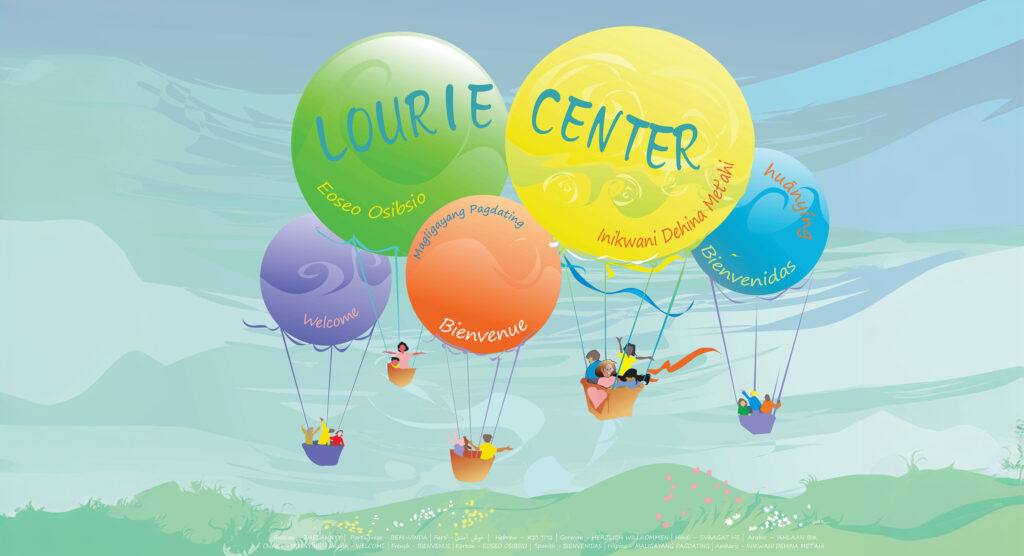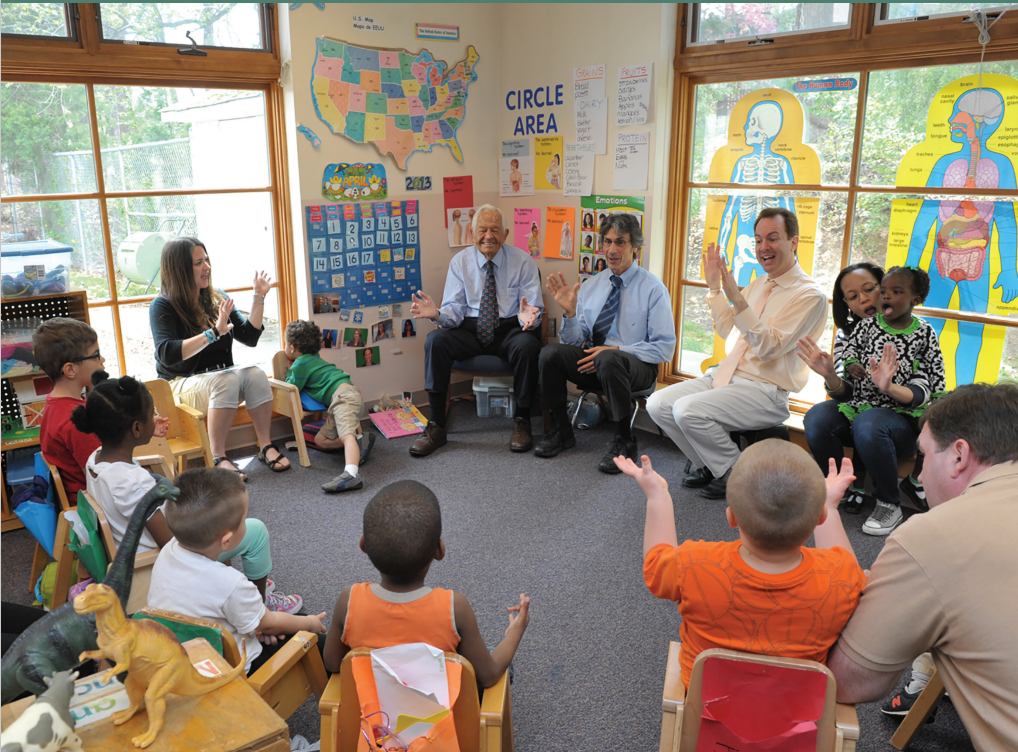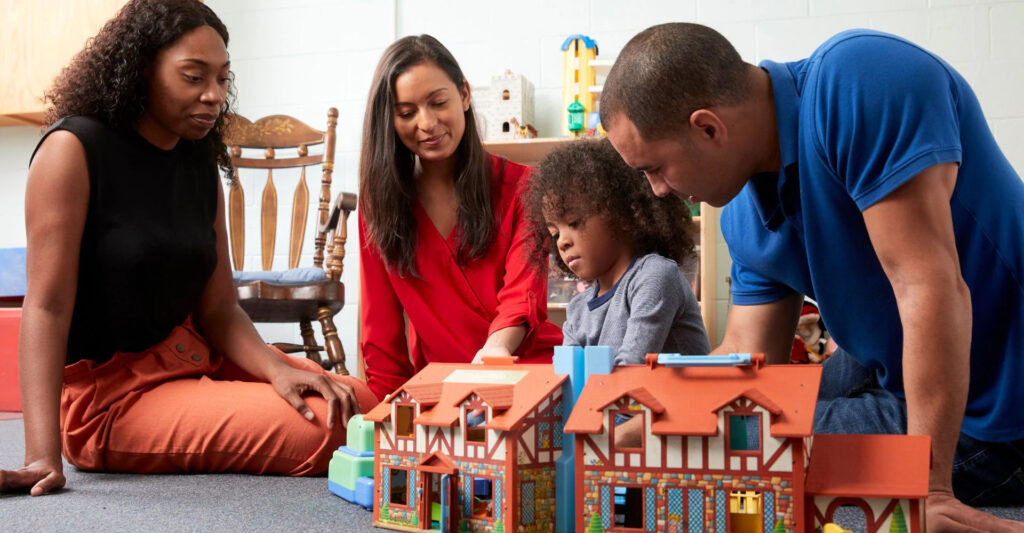The Lourie Center exists to help young children and their caregiving adults overcome adversity and live to their fullest potential. The Lourie Center story is reflected in the heroic stories of our families, like Liliana’s story. Listen to Liliana tell her family’s journey and how The Lourie Center changed her son’s life, her family’s life and helped to “break the curse of generational trauma that has been in her family for generations.”



Who We Are
Adventist HealthCare The Lourie Center for Children’s Social & Emotional Wellness (The Lourie Center), founded in 1982, is named for the late Dr. Reginald Lourie, a distinguished child psychiatrist. Together with leaders in the field of child development, Dr. T. Berry Brazelton and Dr. Stanley Greenspan, and their colleagues, The Center began as a six-year National Institute for Mental Health clinical research study. The study explored the efficacy of identifying and treating social, emotional, and developmental problems in early childhood, birth through age 5.
This landmark research demonstrated the importance of early intervention for healthy social and emotional development in children and the key to strengthening families and building strong parent-child relationships. For more than 40 years, the Center has impacted more than 100,000 children, parents and families using an evidence-based, attachment-centered, trauma-informed, equity advancing, team based care therapeutic and educational model. The Center’s specialized, multidisciplinary team provides home-based, clinic-based, and school-based care to children, birth to 12 and their families in the Washington, D.C. region.

Training, Research, & Partnerships
In addition, the Center provides training and consultation services to early childhood professionals across the country, through regional and national partnerships. In the past five years, the Center has advanced the knowledge and skills of more than 1,500 early childhood mental health students and professionals through clinical placements, and best practice trainings through innovative platforms, such as Project ECHO and Noni.
Innovation to Prevent the Lifelong Consequences of Adversity The Lourie Center is developing innovative programming to better meet the mental health crisis that is impacting our nation’s children. The consequences of ‘doing nothing’ present untold burdens, from the outcomes of a child’s life to its cost impact on business and society.
Adverse Childhood Experiences (ACEs) occur during a person’s most formative years, which has profound and lasting effect on a person’s physical and mental health creating lifelong challenges with learning, socialization, and ability to earn a living. Center for Disease Control research documents that six of the 10 leading causes of death, including heart disease, diabetes, and certain cancers, are linked to untreated adversity experienced in a child’s earliest years.
The Lourie Center’s best practice early intervention model and partnerships have demonstrated proven success in helping children and families overcome adversity to learn and grow within the context of supportive nurturing relationships.

Young Children & the Workplace: Why Companies Care
Research has identified a clear link between the mental health crisis of children and the worsening well-being of their parents, and the significant impact this is having in the workplace:
The Lourie Center hears from parents everyday how stressful their child’s difficulties are, often disrupting their work, including advancement. Employers are increasingly looking to better support their workforce through early childhood supports for working parents.

48% of working parents said their child(ren)’s mental health has impacted their performance at work in some way
60% of parents who are concerned about their child(ren)’s mental health say it negatively affects their own mental health.
You Can Help: Join Us
The children’s mental health crisis is real. It is also a future workforce crisis and an economic development crisis. Early intervention matters. It is the difference between a life of hope or a life of cumulative consequences.
You are a child’s hope. Join us and help the first years of a child’s life be the foundation for lifelong learning, health, and happiness.















